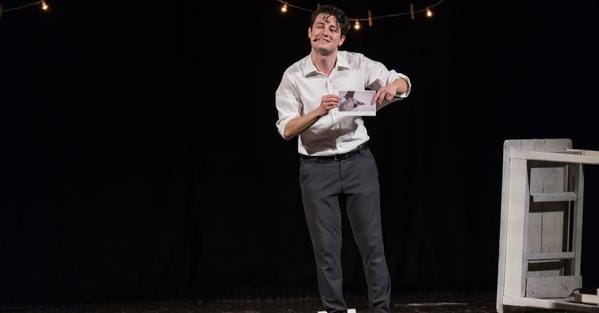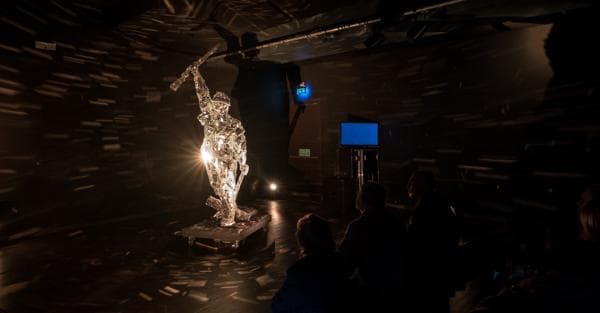“Do you feel more Albanian or more Italian”?
[ad_1]
The Polis festival, which took place in Ravenna from 2 to 7 May, occupies a very special place in the network of Italian theatrical events, for its specific character, for the clear lines of reflection and programming, for that pleasant climate capable of give life to a vital exchange of ideas, intertwined in passing from one theater to another, between a debate and a meeting after the show, between operators, artists and the public. The review, organized by the ErosAntEros company, is dedicated every year to a particular geographical area, investigating the most burning issues in a specific area of the world.
Balkans
This year the focus was placed on the Balkans, a territory as complex, due to political and social issues, as it is rich in history and cultural traditions. Thus scenic elaborations arrived in various spaces of the city with some of the most burning issues at the center regarding those lands, the most evident of which remains, however, that of ethnic identities after the ruinous fall of Yugoslavia, which somehow and forcibly kept together the many diversities.
Thus in Damned be the traitor of his country! by Oliver Frlijć made by the actors from the Slovensko Mladinsko Gledalisce of Ljubljana, the tensions within the same artistic group are shown, in which one questions one another with suspicion, asking if the parents are Serbs, Croatians, or Slovenians, for in this way connoting who is in front of us, reopening the still alive trace of bloody conflicts, reviving visceral hatreds, in the stubborn and impossible search for a precise groove to delimit borders and diversity.
Klaus Martini
It seems to give us a more serene impression than such a controversial issue Klaus Martini with PPP I’ll tell you about Albania, in which the actor narrates the emigration from Albania to Italy of his parents, who boarded a boat, with him as a little boy in the arms of his grandparents to see them leave, to then join them when he got older. And, thinking in parallel to the Italian boys of the 1940s who fled to Yugoslavia in search of a new life and described by Pasolini in The Dream of a Thing, Martini insists on the question he hears most frequently: “Do you feel more Albanian or more Italian?” , a question to which he himself is unable to give an unequivocal answer, because places, figures and traditions of his native land, still alive, are now inextricably amalgamated with relationships, habits and experiences of his life in Italy.


Then the installation by Branko Šimić appeared as sinister as it was ironic who, on a rotating platform, showed us the statue dedicated to the miner of Husino, monument in memory of the workers of a Bosnian town who rose up in the 1920s, here rebuilt with mirror tiles from which colorful disco glows bounced, with the immobile figure in his heroic and courageous outburst to tell his role as a witness of the many changes of that community, up to today’s neo-capitalism, no less conditioning and oppressive than a dictatorship. And still from the Albanian land it came Sworn virgin by Jeton Neziraj directed by Erson Zymberi to reveal the world of those women who, according to an ancient tradition, can decide to consider themselves men and live as men, thus being accepted by the whole community, and this allows them to have properties and other infinite possibilities otherwise denied. Here we imagine a “burrnesh” (as they are defined) hired for a London show halfway between a talk show and a musical on a gender theme, thus comparing the current imagination of the West with such a remote custom.
[ad_2]
Source link













